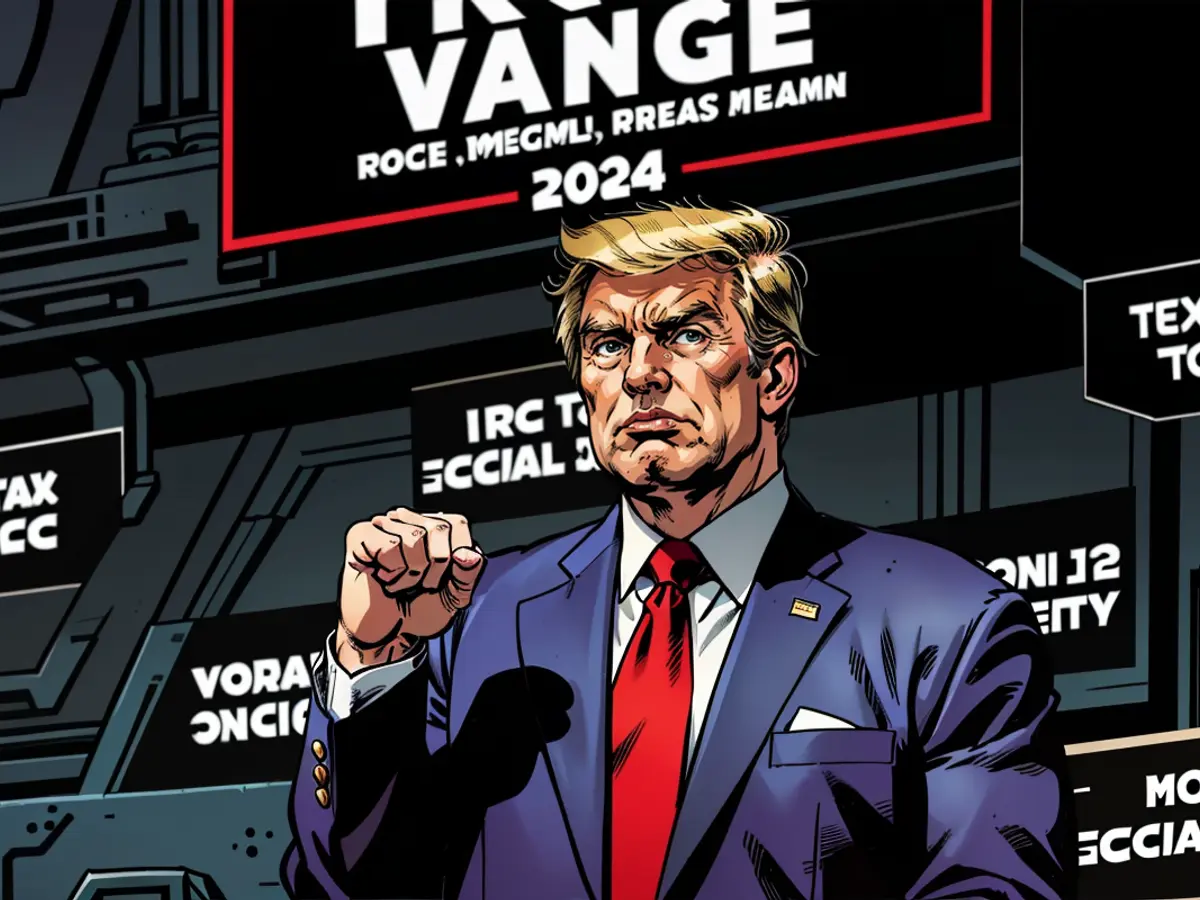EU to meet Trump with tariff stick if necessary
Trump to impose ten percent tariff on all EU imports to the USA if he returns to the White House. Brussels is already working on a strategy to prevent this. If this fails, the European Union will strike back hard.
The European Union is preparing for the possibility of Donald Trump's return to the White House. While Trump has not yet secured the US election, he is already engaging in threats. Due to his "America First" policy, Trump wants to impose a universal tariff of ten percent on all imports from the EU. China, meanwhile, fears a US tariff of 60 percent instead of the current 20 percent. The EU is relying on measures to convince Trump to refrain from imposing tariffs on its goods. If these are imposed nonetheless, the EU has announced that it will respond forcefully.
"Should it be necessary, the EU is ready to defend its legitimate interests," says Birgit Schmeitzner, spokesperson for the EU Commission, to ntv.de. Similarly, Trade Commissioner Valdis Dombrovskis told the "Financial Times": "We have defended our interests with tariffs and we are ready to defend them again if necessary." To prevent a trade dispute, Dombrovskis is open to "targeted agreements."
Such an agreement could involve offering Trump a voluntary increase in imports of US products. However, the question remains of how the EU will persuade its member states' companies to import more US goods. If Trump goes ahead with his threats despite this offer, Brussels plans to impose additional tariffs of at least 50 percent on specifically selected US products.
Harder stance against China could convince Trump
Samina Sultan, an expert at the Institute of the German Economy (IW), knows which products the European Union could then target. "During Trump's first term, the EU also imposed higher tariffs on specific goods, such as Harley-Davidson motorcycles or whiskey," she says to ntv.de. These were targeted pinpricks to hit the products made in the US states and regions led by the Republican Party. The calculation behind this is that the companies there sell fewer products to the EU and thus earn less money. The leading Republicans in the region then put pressure on Trump to lower the tariffs. This strategy is likely to be pursued by the EU again, says Sultan.
Although a tariff war is costly for both sides and could spark a trade war, Sultan sees realpolitik reasons for the defensive strategy: "From the experience with Trump's first term, one knows that one must also meet him with strength." Apart from offering Trump a friendship gesture in the form of increased US imports, Sultan sees another possibility to appease him: Brussels could signal its support for a harder stance against China if Trump, in return, waives the tariffs on EU imports.
The EU could indeed resort to this tactic. Firstly, the Commission has already provisionally imposed tariffs on Chinese electric vehicles in early July, accusing China of unfair competitive advantages through high subsidies. Secondly, Commission spokesperson Schmeitzner also emphasizes that the EU and the US must stand together, given a government in Beijing that is behaving "aggressively" and is friendly with Russia. Therefore, Brussels wants to further deepen its "strategic cooperation" with Washington - even with a US President Trump.
The EU Commission is actively working to prevent a potential tariff imposed by Donald Trump on EU imports, with Birgit Schmeitzner stating that they are ready to defend EU interests if necessary. If Trump persists with his tariff threats, the EU has planned to retaliate forcefully, signaling a robust stance against US policies.








